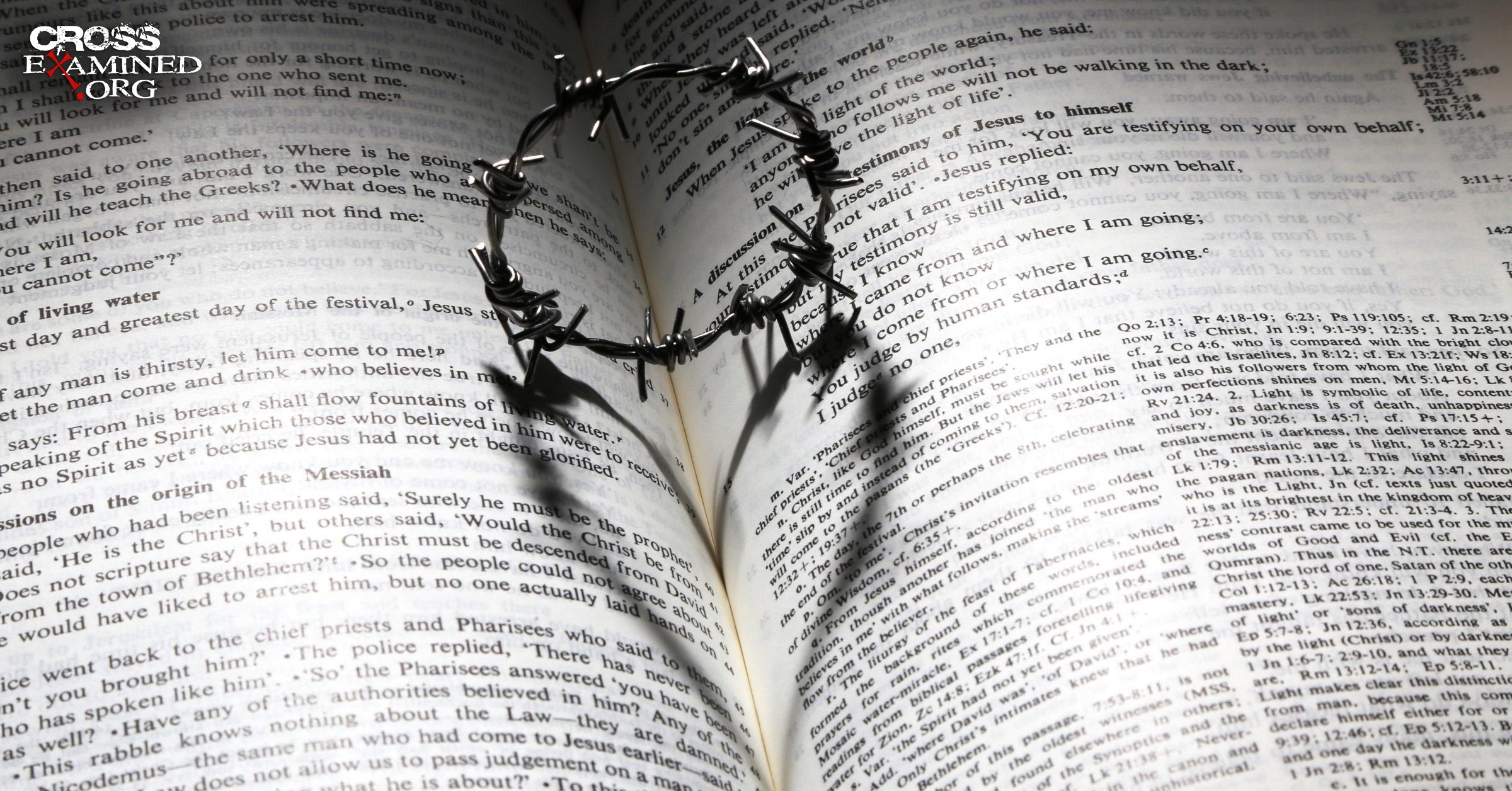By Brian Chilton
On July 8, 1741, Jonathan Edwards, famed pastor and theologian of colonial America, delivered one of his most famed messages of all-time at a church in Enfield, Connecticut. The title of his message was “Sinners in the Hands of an Angry God.” Using Deuteronomy 32:35 as his text, Edwards argued that sinners are kept in the hands of God. Their sin pulls them to hell, whereas God tries to save them from their awful fate in hell. Using vivid language and descriptive adjectives, Edwards notes that the normal state of humanity leads toward destruction. That is, if humanity is left to its own devices, human beings drag themselves to hell. Three important truths are found in Edwards’s classic declaration.
The weight of our sin drags us toward destruction.
Edwards writes,
Your wickedness makes you as it were heavy as lead, and to tend downwards with great weight and pressure towards hell; and if God should let you go, you would immediately sink and swiftly descend and plunge into the bottomless gulf, and your healthy constitution, and your own care and prudence, and best contrivance, and all your righteousness, would have no more influence to uphold you and keep you out of hell, than a spider’s web would have to stop a falling rock. Were it not for the sovereign pleasure of God, the earth would not bear you one moment; for you are a burden to it; the creation groans with you; the creature is made subject to the bondage of your corruption, not willingly; the sun does not willingly shine upon you to give you light to serve sin and Satan; the earth does not willingly yield her increase to satisfy your lusts; nor is it willingly a stage for your wickedness to be acted upon; the air does not willingly serve you for breath to maintain the flame of life in your vitals, while you spend your life in the service of God’s enemies.
The further a person turns from God, the greater the weight of sin the person carries. The same is true of society. The more a society turns from God, the greater the weight of sin that it bears. Racism, anarchy, and violence are not traits that demonstrate the fruit of the Spirit.
God’s grace is what keeps a person from facing judgment now.
Edwards points out the following:
That the reason why they are not fallen already and do not fall now is only that God’s appointed time is not come. For it is said, that when that due time, or appointed time comes, their foot shall slide. Then they shall be left to fall, as they are inclined by their own weight. God will not hold them up in these slippery places any longer, but will let them go; and then, at that very instant, they shall fall into destruction; as he that stands on such slippery declining ground, on the edge of a pit, he cannot stand alone, when he is let go he immediately falls and is lost.
Just because God has not brought judgment yet does not imply that he will not. In due time, God will bring due judgment to a person and a society unless the person or party repents. It is by God’s grace that our society has not been brought down already. How long will God offer his protective hand? Only God knows. But the point of Edwards’s message is that you may not have another opportunity to respond to his grace, for the flames of judgment may be around the corner.
Outside of God’s forgiveness, judgment is inevitable.
Edwards continues by noting,
All wicked men’s pains and contrivance which they use to escape hell, while they continue to reject Christ, and so remain wicked men, do not secure them from hell one moment. Almost every natural man that hears of hell, flatters himself that he shall escape it; he depends upon himself for his own security; he flatters himself in what he has done, in what he is now doing, or what he intends to do. Every one lays out matters in his own mind how he shall avoid damnation, and flatters himself that he contrives well for himself, and that his schemes will not fail. They hear indeed that there are but few saved, and that the greater part of men that have died heretofore are gone to hell; but each one imagines that he lays out matters better for his own escape than others have done. He does not intend to come to that place of torment; he says within himself, that he intends to take effectual care, and to order matters so for himself as not to fail.
Darkness is the veil of sin. Unsurprisingly, protests during the day are peaceful. The individuals protesting at this time are mostly standing for just causes. However, violence and looting come at night. Most likely, these individuals take advantage of the unrest for their own purposes. Wearing masks and using the dark of the night, rioters think that their identity is concealed. However, God knows all things, is in all places, and possesses all power. God is the ultimate Judge overall. Everyone will stand before God (2 Cor. 5:10). This is an inescapable truth.
The nationwide riots and unjustified killing of innocent people serve as depictions of what hell will look like. The looting, killing, shooting and burning all illustrate well the hell that human beings create for themselves. Hell is a place of rebellion. It is a place designed for rebellious entities, not originally planned for human beings.
These issues, while scary, do not take God by surprise. Jesus warned during his message on the Mount of Olives that “you will hear of wars and rumors of wars. See that you are not alarmed, for this must take place, but the end is not yet. For nation will rise against nation, and kingdom against kingdom, and there will be famines and earthquakes in various places. All these are but the beginning of the birth pains” (Matt. 24:6-8, ESV). He goes on to say that he will return instantaneously, saying, “For as lightning comes from the east and shines as far as the west, so will be the coming of the Son of Man” (Matt. 24:27, ESV).
Going back to Edwards’s message, a parallel can be drawn from Edwards’s message to the state of our society. While the sin of society is dragging itself toward chaos, they are but birth pains indicating that the return of Christ is closer than ever before. Is your soul right with God? When God calls the roll up yonder, will you be there?
Source
All quotes from Edwards come from Edwards, Jonathan. “Sinners in the Hands of an Angry God.” BlueLetterBible.org. https://www.blueletterbible.org/Comm/edwards_jonathan/Sermons/Sinners.cfm
Recommended resources related to the topic:
Is Original Sin Unfair? by Frank Turek (DVD, Mp3, and Mp4)
Was Jesus Intolerant? by Frank Turek (DVD and Mp4)
Jesus, You and the Essentials of Christianity – Episode 14 Video DOWNLOAD by Frank Turek (DVD)
How Can Jesus Be the Only Way? (mp4 Download) by Frank Turek
Brian G. Chilton is the founder of BellatorChristi.com, the host of The Bellator Christi Podcast, and the author of the Layman’s Manual on Christian Apologetics. He received his Master of Divinity in Theology from Liberty University (with high distinction); his Bachelor of Science in Religious Studies and Philosophy from Gardner-Webb University (with honors); and received certification in Christian Apologetics from Biola University. Brian is enrolled in the Ph.D. program in Theology and Apologetics at Liberty University and is a member of the Evangelical Theological Society and the Evangelical Philosophical Society. Brian has been in the ministry for nearly 20 years and serves as the Senior Pastor of Westfield Baptist Church in northwestern North Carolina.
Original Blog Source: https://bit.ly/2N8DCTY










